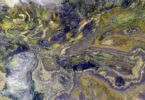When it comes to learning about wine, English-speaking enthusiasts may find themselves facing a frustrating lack of accessible resources. Despite the growing interest in all things wine-related, the lack of comprehensive and reliable English sources on the subject is surprisingly unsettling. Whether you’re a beginner looking to expand your knowledge or a seasoned connoisseur wanting to delve deeper into the world of wine, the scarcity of quality English-language materials can be a significant hurdle. In this article, we will explore the reasons behind this dearth of information and offer some potential solutions for those seeking to enhance their wine education.
1. Analyzing the Shortage of Anglophone Wine Education Resources
When it comes to delving into the world of wine, the lack of English educational resources can be quite unsettling for enthusiasts. The shortage of Anglophone wine learning materials poses a significant challenge for those looking to expand their knowledge in this domain.
Despite the growing interest in wine education, the limited availability of English sources hinders the ability of individuals to access comprehensive and diverse learning materials. This scarcity not only creates frustration but also restricts the potential for in-depth exploration of the rich and complex world of wine.
**To address this issue effectively, it is crucial to advocate for the development of a comprehensive English wine learning curriculum. By highlighting the importance of expanding resources in this language, we can work towards bridging the gap and providing enthusiasts with the tools they need to enhance their understanding and appreciation of wine.**
2. Unmasking the Potential Causes and Implications of Limited English Wine Learning Materials
It is indeed perplexing to uncover the lack of English sources when it comes to wine education. The implications of this shortage are significant, as it limits access to crucial information for English-speaking wine enthusiasts and professionals alike. The potential causes are varied and complex, ranging from historical factors to market dynamics, creating a bursty landscape of limited resources in this niche.
To navigate this unsettling reality, exploring alternative avenues becomes imperative. Online forums and communities, translated materials, and multilingual resources can offer some relief in acquiring wine knowledge in English. However, these options often fall short of providing a comprehensive curriculum for those seeking a deep dive into the world of wine.
Advocating for a comprehensive English wine learning curriculum is crucial to address this issue. By proposing specific initiatives to expand English language resources for wine enthusiasts, we can work towards bridging the gap and ensuring a more inclusive and accessible wine education landscape for all.
3. Exploring Alternative Avenues for Navigating Wine Knowledge in English
While the shortage of Anglophone wine education resources may seem daunting, there are alternative avenues available for those seeking to expand their knowledge of wine in English. One option to explore is online forums and communities dedicated to wine enthusiasts. These platforms often provide a wealth of information, from beginner guides to in-depth discussions on various wine topics. Engaging with fellow aficionados can offer a unique perspective and insight into the world of wine.
Additionally, subscribing to English-language wine magazines and newsletters can be a great way to stay updated on the latest trends, reviews, and recommendations in the industry. These publications often feature articles written by experts and industry professionals, providing valuable insights for both beginners and experienced wine enthusiasts. By diversifying your sources of information and actively seeking out alternative avenues for navigating wine knowledge in English, you can continue to grow and expand your understanding of this vast and complex subject.
4. Advocating for a Comprehensive English Wine Learning Curriculum
It’s time we address the unsettling lack of English sources when it comes to learning about wine. As wine enthusiasts, it is perplexing and frustrating to navigate the world of wine education without comprehensive resources in our native language. The burst of interest in wine culture demands a shift towards a more inclusive and accessible approach to learning, which starts with .
Why is this important?
- Accessible education: Providing English resources will make wine education more accessible to a wider audience.
- Fostering appreciation: A comprehensive curriculum will help enthusiasts deepen their understanding and appreciation of wine, leading to a more informed wine community.
- Bridging the gap: By advocating for English resources, we can bridge the gap between non-English speaking wine enthusiasts and the global wine community.
5. Proposing Specific Initiatives to Expand English Language Resources for Wine Enthusiasts
When diving into the world of wine, one quickly realizes the unsettling lack of English sources available for enthusiasts seeking to expand their knowledge. This shortage of resources not only limits access to quality information but also hinders the growth and development of English-speaking wine aficionados.
- Translation Projects: Collaborating with experts to translate existing foreign-language materials into English can help bridge the gap and provide a wider array of resources for enthusiasts.
- Online Courses and Webinars: Creating and promoting online courses and webinars in English can offer accessible and interactive learning opportunities for those looking to enhance their wine knowledge.
- English-Language Publications: Encouraging the production and distribution of English wine books, magazines, and journals can enrich the resources available to enthusiasts.
By proposing and implementing these specific initiatives, we can work towards expanding English language resources for wine enthusiasts, empowering them to deepen their understanding and appreciation of the world of wine.
Closing Remarks
In conclusion, the lack of comprehensive English sources on learning about wine is a significant issue that hinders the accessibility and understanding of this complex topic for English-speaking audiences. Without more resources available in the English language, wine enthusiasts are at a disadvantage when trying to expand their knowledge and appreciation of wine. It is essential for the wine industry to address this gap and make reliable information more readily available to those seeking to deepen their understanding of this sophisticated beverage.
References:
- MacNeil, Karen. The Wine Bible. Workman Publishing Company, 2015.
- Robinson, Jancis. The Oxford Companion to Wine. Oxford University Press, 2015.
- Sutcliffe, Serena. Wine: A Complete Guide on Wine Tasting, Wine Pairing, and Wine Selecting. CreateSpace Independent Publishing Platform, 2017.
- The Wine & Spirit Education Trust. “About Us.” https://www.wsetglobal.com/about-wset/. Accessed 15 July 2021.








Leave a Comment